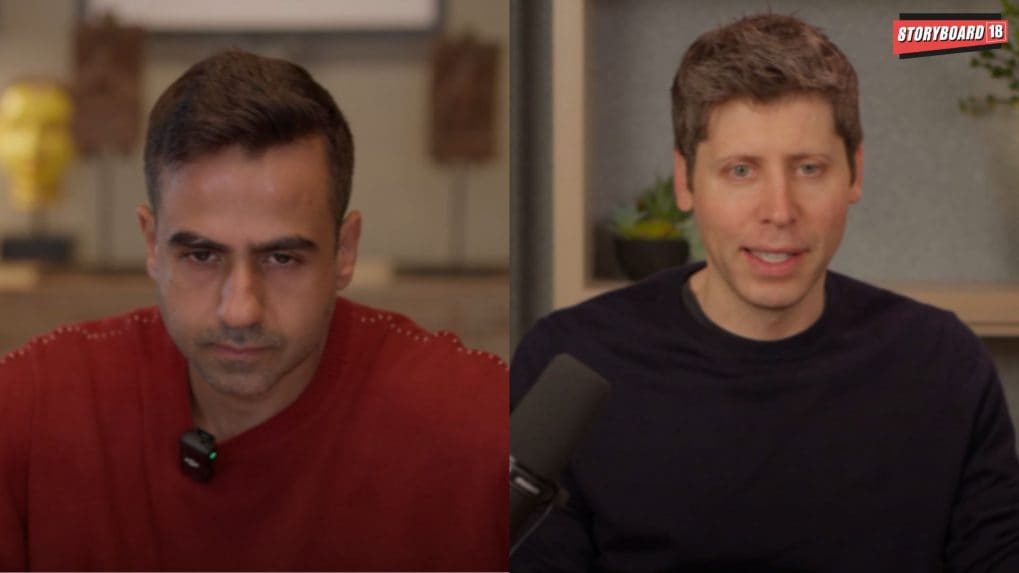Digital
Why OpenAI is hiring 100 ex-bankers: Inside the ChatGPT-maker's secret project to automate Wall Street's grunt work

In a candid and wide-ranging conversation on People by WTF, entrepreneur and investor Nikhil Kamath sat down with OpenAI CEO Sam Altman to explore the technological, economic, and social shifts driven by the launch of GPT-5.
The discussion spanned AI's capabilities, India's pivotal role in shaping the future, and the enduring value of human creativity and connection in a machine-led era.
A Leap Beyond Previous Models
Opening with the question of what makes GPT-5 different, Altman described the new model as "PhD-level experts in every field available to you 24/7," capable of not only answering questions but executing complex, multi-step tasks. Going back to older models, he said, now feels "painful," underscoring GPT-5's advances in reliability, context, and workflow execution.
India's AI Moment
Calling India's OpenAI's second-largest market - and potentially its largest - Altman credited Indian users with shaping product development through feedback on language support, affordability, and access.
He described the country's AI ecosystem as "incredible" and "already transforming," urging Indian entrepreneurs to move from being consumers to global creators.
AI as a Co-Founder
For young entrepreneurs, Altman positioned GPT-5 as an all-in-one partner capable of writing code, handling customer support, drafting marketing strategies, and reviewing legal documents.
However, he cautioned that AI alone cannot serve as a business moat, noting execution and strategic direction remain key differentiators.
Skills for the AI Age
When asked what skills a 25-year-old should focus on, Altman said learning to use AI tools effectively is the most important hard skill today.
He emphasised adaptability and rapid learning as core strengths for thriving in a fast-changing world.
Humility, Adaptation, and Meaning
Reflecting on leadership, Altman admitted that even the most influential tech leaders are “figuring it out as they go.” He highlighted adaptability over certainty, noting that reality often forces course corrections.
On a personal note, he called parenthood the most fulfilling choice of his life and stressed the importance of family and community in a post-AGI world.
Economics, AGI, and the Future of Capital
Addressing the potential economic impact of AGI, Altman said the long-term outlook may be deflationary but predicted unusual short-term dynamics due to high demand for AI compute. He likened the competitive risks for AI-based startups to the early mobile app economy, where only complex, value-adding products endured.
What AI Can’t Replace
Altman predicted that in a world of infinite AI-generated content, “being a real person” will hold more value than ever. While AI will surpass humans in many intellectual tasks, he believes human life stories, culture, and social bonds will remain uniquely valuable.
Robotics, Form Factors, and Climate
On robotics, Altman expects humanoid designs to dominate given the human-centric design of the physical world, but acknowledged manufacturing remains a barrier for new entrants. He also envisioned future AI form factors as proactive companions embedded in daily life through wearables and ambient devices.
On climate, he reaffirmed his optimism about fusion energy while noting that reversing existing environmental damage will remain a challenge.
From Delhi’s sharp-tongued lyricists to Chennai’s bilingual innovators and North-East India’s experimental beatmakers, Rap 91 LIVE’s lineup was a sonic map of the country’s cultural diversity.
Read MoreAs WPP reels from revenue declines and vows sweeping restructuring, Publicis and Havas ride strong AI-led client demand. With Omnicom and IPG on the cusp of a historic merger, the global advertising landscape braces for a power realignment built on data, technology, and efficiency.